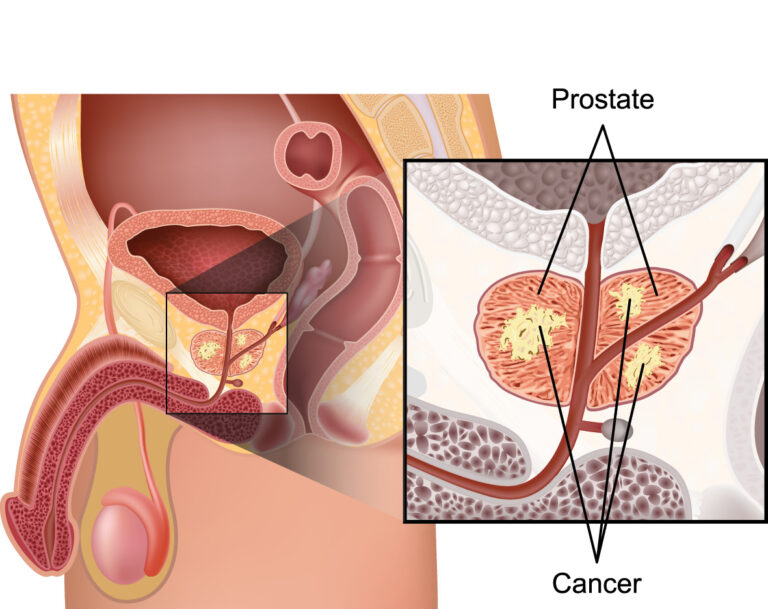The Mind-Body Connection: Exploring Mental Aspects of Sexual Health

Understanding the Link Between Mental Health and Sexual Well-being

Mental health and sexual well-being are intricately linked, with one significantly impacting the other. Numerous studies have shown that individuals experiencing mental health issues may encounter difficulties in their sexual lives, ranging from decreased libido to challenges in maintaining satisfying relationships. On the other hand, sexual well-being can also contribute to mental health, serving as a source of pleasure, connection, and overall emotional well-being.
Research has consistently highlighted the impact of mental health disorders, such as anxiety and depression, on sexual well-being. Anxiety, for instance, can lead to increased feelings of self-consciousness and performance anxiety, which may hinder sexual desire and arousal. Similarly, depression can significantly dampen sexual interest and pleasure, often accompanied by decreased energy and motivation. Understanding these connections between mental health and sexual well-being is crucial for both individuals and healthcare professionals, as it allows for a comprehensive approach to address concerns and improve overall quality of life.
Exploring the Influence of Stress and Anxiety on Sexual Desire

Stress and anxiety are common experiences that can have a significant impact on various aspects of our lives, including our sexual desire. When we are under stress, our bodies release a hormone called cortisol, which can lead to a decrease in sexual desire. Additionally, anxiety can make us feel tense, preoccupied, and distracted, making it difficult to fully relax and engage in sexual activity.
Studies have shown that chronic stress and anxiety can have long-lasting effects on our sexual desire and overall sexual function. One study conducted on women found that higher levels of stress were associated with lower levels of sexual desire. Another study focusing on men found that anxiety was associated with decreased sexual function and satisfaction.
It’s important to note that stress and anxiety can manifest in different ways for each individual. Some may experience a complete loss of sexual desire, while others may still feel desire but struggle with physical arousal. Understanding the link between stress, anxiety, and sexual desire can help individuals identify and address any underlying issues.
If you find that stress and anxiety are impacting your sexual desire, it may be helpful to explore stress management techniques such as exercise, relaxation exercises, and seeking support from a therapist or counselor. Additionally, open communication with your partner about your feelings and experiences can foster a supportive and understanding environment. Remember, it is important to prioritize your mental and emotional well-being in order to maintain a healthy and satisfying sexual life.
The Role of Body Image and Self-esteem in Sexual Satisfaction

Body image and self-esteem can have a significant impact on sexual satisfaction. When individuals feel positive about their bodies and have good self-esteem, they are more likely to engage in sexual activities with confidence and enjoy their intimate experiences. On the other hand, those who have poor body image and low self-esteem may experience difficulties in feeling comfortable and relaxed during sexual encounters.
Research has consistently shown a strong association between body image and sexual satisfaction. A study conducted by Meston and Buss (2007) found that women who had more positive body image reported higher levels of sexual satisfaction. Similarly, a study by Cash and Pruzinsky (2002) revealed that men who felt more positive about their bodies experienced greater sexual satisfaction.
The connection between body image and sexual satisfaction can be influenced by several factors, including societal pressures, media representations of idealized bodies, and personal beliefs about attractiveness. Negative body image and low self-esteem can lead to feelings of insecurity, inhibitions, and self-consciousness during sexual interactions. These factors may contribute to reduced sexual desire, decreased arousal, and difficulties in achieving orgasm.
It is important to note that body image issues and self-esteem concerns are not exclusive to any specific gender or age group. Both men and women can be affected by body image dissatisfaction, which can impact their sexual well-being. Additionally, individuals of all ages may experience fluctuations in body image and self-esteem at different stages of their lives.
Addressing body image and self-esteem issues requires a holistic approach that encompasses both psychological and physical aspects. Seeking therapy or counseling can be helpful in exploring and addressing the underlying factors contributing to negative body image and low self-esteem. Through therapy, individuals can develop coping strategies, challenge negative thought patterns, and cultivate self-acceptance and self-love.
Improving body image and self-esteem can positively impact sexual satisfaction, leading to a more fulfilling and enjoyable intimate life. It is crucial to recognize that everyone’s body is unique, and true beauty and attractiveness come in various shapes, sizes, and forms. Embracing and accepting oneself can foster a healthier perspective on body image and enhance overall sexual well-being.
Examining the Impact of Depression and Mood Disorders on Sexual Health
Depression and mood disorders can have a significant impact on sexual health, affecting individuals both physically and emotionally. These conditions are known to cause a decrease in sexual desire, arousal, and satisfaction, leading to a strain on intimate relationships. Research has shown that individuals with depression are more likely to experience sexual dysfunction, such as erectile dysfunction in men and orgasmic difficulties in women.
One of the contributing factors to the impact of depression and mood disorders on sexual health is the alteration of neurotransmitters in the brain. These chemical messengers, such as serotonin and dopamine, play a crucial role in regulating mood and sexual function. When there is an imbalance in these neurotransmitters, it can result in a decrease in sexual desire and pleasure.
In addition to the neurochemical changes, depression and mood disorders can also lead to fatigue, lack of energy, and feelings of worthlessness, all of which can further dampen sexual interest. Furthermore, the emotional toll of these conditions, such as feelings of sadness, guilt, and low self-esteem, can also interfere with sexual enjoyment and intimacy.
It is important to note that the impact of depression and mood disorders on sexual health can vary from individual to individual. Some people may notice a temporary decrease in sexual desire, while others may experience more persistent and severe difficulties. Seeking professional help, such as therapy or medication, can often alleviate symptoms and improve sexual functioning alongside mental well-being.
In the next section, we will further explore the connection between trauma and sexual functioning, shedding light on how past experiences can shape one’s sexual well-being.
Certainly! Here’s a table summarizing the impact of depression and mood disorders on sexual health:
| Impact of Depression and Mood Disorders on Sexual Health | Description |
|---|---|
| Changes in Libido | Depression: Decreased libido due to changes in neurotransmitters and overall energy levels. |
| Bipolar Disorder: Fluctuations in libido, with increased libido during manic episodes. | |
| Arousal and Sexual Response | Depression: Reduced interest in sexual activities leading to difficulties in arousal. |
| Mood Swings (Bipolar Disorder): Inconsistent sexual response due to alternating states. | |
| Physical Symptoms | Depression: Fatigue and low energy levels impacting the ability to engage in sexual activities. |
| Medication Side Effects: Some medications may cause sexual side effects, affecting libido and function. | |
| Changes in Sexual Satisfaction | Depression: Feelings of sadness and hopelessness contributing to decreased overall satisfaction. |
| Mood Disorders: Fluctuations in mood affecting overall sexual satisfaction. |
Unveiling the Connection Between Trauma and Sexual Functioning
Sexual functioning is a complex and intricate aspect of human life, deeply influenced by various factors. One critical factor that can significantly impact sexual functioning is trauma. Trauma refers to any distressing or disturbing event that overwhelms an individual’s ability to cope. It can vary in its form, ranging from physical assault and abuse to emotional or psychological trauma.
Trauma can have a profound and lasting impact on an individual’s sexual well-being. Many survivors of trauma experience difficulties in various aspects of their sexual functioning, including desire, arousal, orgasm, and satisfaction. The experience of trauma can lead to a range of challenges, such as diminished sexual desire, pain during intercourse, and difficulties in forming intimate connections. These difficulties can significantly affect the overall quality of life and well-being of survivors.
Research suggests that trauma-related symptoms, such as hypervigilance, intrusive thoughts, and avoidance behaviors, can interfere with the ability to experience pleasure and intimacy in a sexual context. Additionally, trauma can disrupt the individual’s sense of safety and trust, making it challenging to establish and maintain healthy and fulfilling sexual relationships. Therefore, understanding the connection between trauma and sexual functioning is crucial for healthcare professionals to provide appropriate support and interventions for individuals who have experienced trauma.
How Psychological Factors Affect Sexual Performance
Sexual performance is a complex interplay of physical, emotional, and psychological factors. While physical factors such as hormones and blood flow are often discussed, it is equally important to recognize the significant influence of psychological factors on sexual performance. The mind and body are intricately connected, and any disturbances in one can affect the other.
Psychological factors encompass a wide range of elements that can impact sexual performance. These can include stress, anxiety, self-esteem, body image, past experiences, and relationship dynamics, among others. High levels of stress and anxiety can lead to diminished sexual desire and performance. When the mind is preoccupied with worry or negative thoughts, it becomes challenging to let go and fully engage in sexual activities. In addition, body image issues and low self-esteem can create feelings of inadequacy and hinder sexual satisfaction. It is important to understand and address these psychological factors to improve overall sexual well-being.
Addressing Relationship Dynamics and their Influence on Sexual Health
Introduction:
When it comes to sexual health, the dynamics of our relationships play a significant role. The quality of our relationships, the level of communication and intimacy, and even the overall emotional well-being of both partners can greatly influence our sexual satisfaction. In fact, research has shown that healthy relationship dynamics can contribute to better sexual health outcomes and overall well-being. In this section, we will explore the various ways in which relationship dynamics influence sexual health, providing you with valuable insights and practical strategies to enhance your own sexual well-being within the context of your relationships.
Understanding the Link Between Relationship Quality and Sexual Satisfaction:
Relationship quality, characterized by factors such as trust, communication, emotional support, and intimacy, has been found to have a significant impact on sexual satisfaction. When couples feel emotionally connected and secure in their relationship, it can pave the way for a more satisfying sexual experience. According to a study published in the Journal of Sexual Medicine, individuals who reported higher levels of relationship satisfaction also reported higher levels of sexual satisfaction.
Effective communication within a relationship is key to ensuring both partners feel heard, understood, and valued. This includes expressing one’s sexual needs and desires, discussing any concerns or issues that may arise, and actively listening to one another without judgment. When couples engage in open and honest communication about their sexual desires, boundaries, and preferences, it can lead to a greater sense of sexual fulfillment and intimacy.
Additionally, the presence of emotional support and mutual respect in a relationship can foster a sense of safety and vulnerability, allowing both partners to fully explore their sexual desires and experience pleasure together. A study published in the Archives of Sexual Behavior found that individuals who felt emotionally supported by their partners reported higher levels of sexual satisfaction.
Conclusion:
In conclusion, the dynamics of our relationships have a profound impact on our sexual health and overall well-being. By fostering healthy relationship dynamics through effective communication, emotional support, and mutual respect, individuals can enhance their sexual satisfaction and strengthen their overall bond. It is crucial to prioritize the emotional and relational aspects of our partnerships in order to create a space where both partners can freely express their sexual desires, feel emotionally connected, and experience heightened levels of sexual fulfillment. In the next section, we will delve deeper into how past experiences can influence our sexual well-being, highlighting the importance of understanding and addressing these factors for a healthier and more fulfilling sexual life.
Exploring the Effects of Past Experiences on Sexual Well-being
Past experiences can have a significant impact on a person’s sexual well-being. Traumatic events, such as sexual abuse or assault, can result in various sexual difficulties and challenges later in life. According to a study published in the Journal of Traumatic Stress, survivors of sexual trauma may experience symptoms such as decreased sexual desire, difficulties in arousal and orgasm, and increased sexual anxiety.
Furthermore, individuals who have had negative or unsatisfying sexual experiences in the past may develop certain psychological barriers that hinder their sexual well-being. These barriers can manifest as anxiety, fear, or shame related to sex. For example, a person who has experienced rejection or ridicule in the past may develop performance anxiety or body image issues, leading to difficulties in achieving sexual satisfaction.
In addition to these psychological effects, past experiences can also influence relationship dynamics and communication in the present. A study published in the Journal of Marital and Family Therapy found that individuals who have experienced past trauma may have difficulty establishing and maintaining intimate connections with their partners. Trust issues, fear of vulnerability, and emotional detachment can all contribute to strained relationships and hinder sexual satisfaction.
While past experiences can undoubtedly have a profound impact on sexual well-being, it is important to remember that individuals can find healing and recovery through therapy and support. Seeking professional help from a qualified therapist or counselor can provide a safe space for individuals to process their past experiences and work towards healing and reclaiming their sexual well-being.
Understanding the Role of Communication in Sexual Satisfaction
Communication plays a crucial role in sexual satisfaction, as it allows partners to express their desires, needs, and boundaries openly and effectively. Effective communication can lead to an increased sense of intimacy, trust, and emotional connection between partners, thus enhancing sexual pleasure and fulfillment.
One of the key aspects of communication in sexual satisfaction is the ability to discuss one’s desires and fantasies without judgment or shame. Engaging in open and honest conversations about sexual preferences, likes, and dislikes can help partners understand each other’s needs and explore new ways to enhance sexual pleasure. It is important to create a safe and non-judgmental space where both partners feel comfortable sharing their desires and concerns.
Moreover, communication during sexual encounters itself is crucial. Non-verbal cues, such as body language and vocalization, can convey important information about pleasure and consent. Partners should feel empowered to give and receive feedback, ensuring that both individuals are enjoying the experience and that consent is continuously respected. Verbal communication can also be utilized to guide and provide direction, ensuring that both partners are on the same page and that their needs are being met.
In conclusion, effective communication is key to sexual satisfaction. By fostering open dialogue about desires and boundaries and engaging in ongoing communication during sexual encounters, partners can create a foundation of trust and understanding that enhances their sexual experiences.
The Influence of Cultural and Societal Factors on Sexual Health
Cultural and societal factors have a significant influence on sexual health, shaping individuals’ beliefs, values, attitudes, and behaviors around sexuality. These influences can come from various sources, such as family, religion, education, media, and community norms. Understanding how these factors impact sexual health is crucial for addressing challenges and promoting positive sexual well-being.
One of the cultural factors that can affect sexual health is the prevailing attitudes towards sex and sexuality. Different cultures have varied perspectives on what is considered acceptable or taboo behavior, leading to variations in sexual values and practices. For example, in some cultures, discussing sex openly may be viewed as inappropriate or immoral, which can create barriers to sexual communication and education. On the other hand, cultures that embrace sexual openness and education may have more positive attitudes and knowledge about sexual health.
Societal factors, such as gender norms and social expectations, also play a role in shaping individuals’ sexual experiences and behaviors. Gender roles and expectations can influence how individuals perceive their own sexual desires and behaviors, as well as how they view and interact with their partners. For instance, in some societies, there may be expectations for men to be sexually assertive and dominant, while women are expected to be passive and submissive. These gendered expectations can impact the dynamics within sexual relationships and affect individuals’ overall sexual satisfaction.
Furthermore, cultural and societal factors can impact access to sexual health resources and support. In some cultures, there may be limited availability or restricted access to comprehensive sexual education, contraception, and sexual health services. These barriers can contribute to misinformation, lack of awareness, and increased risks for sexual health problems such as sexually transmitted infections and unplanned pregnancies.
Given the influence of cultural and societal factors on sexual health, it is essential to foster inclusive and non-judgmental environments that respect diverse sexual orientations, identities, and practices. Promoting open and fact-based sexual education, challenging stigmas and stereotypes, and providing accessible sexual health services are key strategies in addressing these influences and supporting individuals’ overall sexual well-being.
Exploring the Connection Between Mental Health Medications and Sexual Functioning
Mental health medications are commonly prescribed to individuals who are struggling with various mental health conditions such as depression, anxiety, bipolar disorder, or schizophrenia. While these medications can be highly effective in managing symptoms and improving overall well-being, they can also have an impact on sexual functioning. It is important for individuals to be aware of the potential effects of these medications on their sexual health and to have open and honest discussions with their healthcare providers.
One class of medications that can affect sexual functioning is selective serotonin reuptake inhibitors (SSRIs), which are commonly prescribed for depression and anxiety disorders. These medications work by increasing the levels of serotonin in the brain, but they can also lead to side effects such as decreased sexual desire, difficulty achieving orgasm, or erectile dysfunction in men. It is estimated that up to 50% of individuals taking SSRIs may experience some form of sexual dysfunction as a result of these medications (Clayton et al., 2001). This can have a significant impact on the quality of life and overall well-being of individuals, as sexual health is an integral part of human experience and relationships.
It is worth noting that not all individuals will experience sexual side effects from mental health medications, and the severity and duration of these effects can vary from person to person. It is important for individuals to communicate openly with their healthcare providers about any changes or concerns in their sexual functioning so that appropriate adjustments to medication or alternative treatment options can be explored. Additionally, other factors such as the underlying mental health condition, individual susceptibility, and the specific medication and dosage prescribed can also influence the likelihood and severity of sexual side effects. In some cases, healthcare providers may be able to recommend strategies or interventions to mitigate these effects, such as changing the medication dosage or timing, adding a second medication, or exploring non-medication approaches to managing mental health symptoms. The ultimate goal is to achieve a delicate balance between mental health management and sexual well-being, and healthcare providers play a crucial role in supporting individuals through this process.
Overall, while mental health medications can be essential for managing symptoms and improving overall quality of life, it is important for individuals to have an open and honest dialogue with their healthcare providers about the potential effects on sexual functioning. By working collaboratively, individuals can find the most appropriate treatment approach that supports their mental health while also addressing any concerns related to sexual well-being. It is essential for individuals to remember that their mental health and sexual well-being are interconnected, and a comprehensive approach that incorporates both aspects is crucial for overall well-being.
Addressing Sexual Dysfunction and its Psychological Causes
Sexual dysfunction, a condition that affects individuals of all genders, can have various psychological causes. It is important to address these underlying psychological factors in order to effectively treat and manage sexual dysfunction. Understanding the psychological causes can also help alleviate distress and improve overall sexual well-being.
One common psychological cause of sexual dysfunction is anxiety. Anxiety can interfere with sexual desire, arousal, and performance. Some individuals may experience performance anxiety, leading to difficulties in achieving or maintaining an erection in men and vaginal lubrication in women. This anxiety can stem from fear of sexual inadequacy, relationship issues, or insecurities about body image. Additionally, stress, which often accompanies anxiety, can further exacerbate sexual problems. Chronic stress can negatively impact libido and overall sexual functioning. Consulting with a mental health professional can help identify and address anxiety symptoms, allowing for a more holistic approach to treating sexual dysfunction.
The Role of Mindfulness and Mental Well-being in Sexual Health
Mindfulness and mental well-being play an important role in overall sexual health. When we talk about sexual health, it encompasses not only physical aspects but also psychological and emotional well-being. In recent years, there has been a growing body of research highlighting the benefits of mindfulness practices on various aspects of our lives, including our sexual health.
One of the ways that mindfulness can positively impact sexual health is through increased self-awareness. Mindfulness practices, such as meditation and breathing exercises, help individuals develop a deeper understanding of their own bodies, thoughts, and emotions. By becoming more attuned to their own sensations and desires, individuals can enhance their sexual experiences and satisfaction. Additionally, mindfulness can help individuals to be more present in the moment during sexual activities, allowing them to fully engage with their partner and experience heightened pleasure.
Moreover, mental well-being is closely linked to sexual health. Conditions like stress, anxiety, and depression can significantly impact an individual’s libido and sexual functioning. Mindfulness practices have been shown to reduce stress and anxiety levels, as well as improve overall mental well-being. By managing these psychological factors, individuals may experience improved sexual desire, arousal, and satisfaction. This is supported by a study published in the Journal of Sex Research, which found that mindfulness-based interventions led to increased sexual satisfaction and desire among participants.
By incorporating mindfulness practices into our daily lives, we can cultivate a greater sense of self-awareness, reduce stress and anxiety, and enhance our overall mental well-being. These positive effects can translate into improved sexual health, leading to more fulfilling and satisfying sexual experiences. However, it’s important to note that mindfulness alone is not a solution for all sexual health issues. If you are experiencing persistent challenges or concerns related to your sexual health, it is advisable to seek guidance from a healthcare professional who can provide personalized support and treatment options.
In conclusion, the role of mindfulness and mental well-being in sexual health cannot be underestimated. By practicing mindfulness and taking care of our mental well-being, we can positively impact our sexual experiences and overall satisfaction. It is an exciting field of research that offers promising avenues for individuals seeking to enhance their sexual well-being.
Exploring the Impact of Shame and Guilt on Sexual Satisfaction
Shame and guilt are complex emotions that can have a significant impact on sexual satisfaction. When individuals experience feelings of shame or guilt surrounding their sexuality, it can create barriers that hinder their ability to enjoy and engage in healthy sexual experiences. Shame, in particular, is often linked to a negative self-perception and can lead to feelings of inadequacy, embarrassment, or unworthiness.
Research has shown that shame and guilt can negatively affect various aspects of sexual well-being. For instance, individuals who experience shame or guilt may struggle with body image issues, leading to a decrease in self-esteem and sexual confidence. This can manifest as a reluctance to engage in sexual activities or an inability to fully embrace and enjoy sexual pleasure.
Moreover, shame and guilt can also affect communication and intimacy within relationships. Couples who are burdened by shame or guilt may find it challenging to express their desires, needs, and boundaries effectively. This lack of open communication can result in misunderstandings, dissatisfaction, and a lack of sexual fulfillment for both partners.
Addressing shame and guilt requires a multifaceted approach, combining individual introspection and professional guidance. Therapy, such as cognitive-behavioral therapy (CBT), has been found to be effective in helping individuals identify and challenge unhealthy thoughts and beliefs surrounding sexuality. By working through these emotions in a safe and supportive environment, individuals can develop healthier attitudes towards themselves and their sexual experiences.
Furthermore, cultivating self-compassion is crucial in overcoming shame and guilt. Learning to accept and love oneself, embracing imperfections, and challenging societal expectations can significantly contribute to a more positive and fulfilling sexual life. It is essential to remember that sexuality is a natural and personal aspect of human existence, and no one should be burdened by feelings of shame or guilt.
In conclusion, shame and guilt can have a profound impact on sexual satisfaction. These complex emotions can hinder individuals’ ability to fully embrace their sexuality and derive pleasure from sexual experiences. However, with the right support and guidance, it is possible to overcome these barriers and cultivate a healthier and more satisfying sexual life.
Understanding the Benefits of Therapy in Improving Mental Aspects of Sexual Health
Therapy can play a crucial role in improving the mental aspects of sexual health. It provides a safe space for individuals to explore their thoughts, feelings, and concerns related to their sexuality. Through therapy, individuals can gain a deeper understanding of their sexual desires, address any underlying psychological issues, and develop healthier attitudes towards their own bodies and sexual experiences.
One of the key benefits of therapy is the opportunity for individuals to work through any past traumas or negative experiences that may be impacting their sexual well-being. Trauma, such as sexual abuse or assault, can have long-lasting effects on one’s mental health and sexual functioning. By addressing these traumas in therapy, individuals can begin to heal and regain control over their sexuality.
Furthermore, therapy can help individuals develop effective coping mechanisms for managing stress, anxiety, and other mental health conditions that may be negatively affecting their sexual desire and satisfaction. Stress and anxiety are known to hinder sexual functioning and libido. Therapy can provide individuals with strategies to reduce stress and anxiety levels, allowing them to experience greater sexual well-being.
Overall, therapy offers a holistic approach to improving mental aspects of sexual health. By addressing psychological factors, such as trauma, anxiety, and stress, individuals can enhance their overall well-being and regain a fulfilling and satisfying sexual life.
What is the role of therapy in improving mental aspects of sexual health?
Therapy plays a crucial role in improving mental aspects of sexual health by addressing issues such as stress, anxiety, body image, self-esteem, depression, trauma, relationship dynamics, past experiences, communication, cultural factors, mental health medications, sexual dysfunction, mindfulness, shame, guilt, and more.
How does stress and anxiety affect sexual desire?
Stress and anxiety can have a negative impact on sexual desire by creating distractions, reducing arousal, and causing performance anxiety. Therapy can help individuals learn coping mechanisms and relaxation techniques to manage stress and anxiety, thereby improving sexual desire.
What role does body image and self-esteem play in sexual satisfaction?
Body image and self-esteem are important factors in sexual satisfaction. Negative body image and low self-esteem can lead to inhibitions, decreased confidence, and reduced enjoyment of sexual experiences. Therapy can help individuals develop a positive body image and improve self-esteem, enhancing their sexual satisfaction.
How does depression and mood disorders affect sexual health?
Depression and mood disorders can significantly affect sexual health by reducing libido, causing erectile dysfunction or loss of vaginal lubrication, and decreasing overall sexual satisfaction. Therapy can aid in managing depression and mood disorders, thereby improving sexual health.
What is the connection between trauma and sexual functioning?
Trauma can greatly impact sexual functioning by causing symptoms such as flashbacks, fear, anxiety, and avoidance of sexual experiences. Therapy can help individuals process and overcome trauma, leading to improved sexual functioning.
How do psychological factors affect sexual performance?
Psychological factors such as performance anxiety, self-consciousness, and stress can negatively impact sexual performance. Therapy can address these psychological factors and provide individuals with strategies to enhance sexual performance.
How do relationship dynamics influence sexual health?
Relationship dynamics, such as communication issues, conflicts, or lack of emotional and physical intimacy, can have a significant impact on sexual health. Therapy can help couples improve their communication and address relationship issues, leading to better sexual health.
What effects do past experiences have on sexual well-being?
Past experiences, such as traumatic events, sexual abuse, or negative sexual encounters, can affect sexual well-being by causing emotional distress, trust issues, or anxiety. Therapy can help individuals process and heal from these past experiences, contributing to improved sexual well-being.
How does communication play a role in sexual satisfaction?
Effective communication is crucial for sexual satisfaction as it allows partners to express their desires, boundaries, and concerns. Therapy can help individuals and couples develop better communication skills, leading to increased sexual satisfaction.
How do cultural and societal factors influence sexual health?
Cultural and societal factors, such as beliefs, norms, and expectations surrounding sexuality, can influence sexual health by shaping individuals’ attitudes, behaviors, and comfort levels. Therapy can help individuals explore and challenge societal norms, leading to a healthier understanding of their own sexual health.
What is the impact of mental health medications on sexual functioning?
Mental health medications, such as antidepressants or antipsychotics, can have side effects that negatively affect sexual functioning, including decreased libido or difficulty achieving orgasm. Therapy can provide guidance on managing these side effects and finding strategies to improve sexual functioning.
What are the psychological causes of sexual dysfunction?
Psychological causes of sexual dysfunction can include factors such as anxiety, depression, trauma, relationship issues, stress, or negative self-perception. Therapy can help individuals identify and address these psychological causes to improve sexual functioning.
How does mindfulness and mental well-being contribute to sexual health?
Mindfulness and mental well-being can contribute to sexual health by promoting present moment awareness, reducing stress, increasing self-awareness, and enhancing overall satisfaction with sexual experiences. Therapy can incorporate mindfulness techniques to improve mental well-being and sexual health.
What is the impact of shame and guilt on sexual satisfaction?
Shame and guilt can significantly impact sexual satisfaction by creating feelings of inadequacy, inhibitions, or negative self-judgment. Therapy can help individuals address and overcome shame and guilt, leading to improved sexual satisfaction.
How can therapy help in improving mental aspects of sexual health?
Therapy provides a safe and supportive environment for individuals to explore and address various mental aspects affecting sexual health. Through therapeutic techniques and interventions, individuals can gain insight, develop coping strategies, and experience personal growth, ultimately improving their mental well-being and sexual health.






